Clarity First
We reduce cognitive load using plain language, generous whitespace, and obvious affordances so users never guess what to do next.

Precision-crafted UI design for every touchpoint—web apps, mobile apps, dashboards, and marketing sites— built on reusable components, design systems, and UI guidelines.
Responsive, component-driven UI for complex workflows—forms, tables, and state patterns (empty/error/loading).
Platform-native patterns with scalable assets & motion—bottom nav, tab bars, gestures, adaptive type.
TDecision-first dashboards with hierarchy, color semantics, and accessible charts/tables.
High-performance landing pages, pricing tables, and lead flows aligned to brand & SEO.
Tokenized systems with component libraries, variant rules, and multi-brand themes.
WCAG-aware colors, keyboard paths, RTL support, and i18n-ready UI labels.
We’ll map your scope into this process and share timelines & estimates.
Get Your UI Plan
Timeless UI rules guide every pixel we ship—clarity, consistency, and accessibility baked into tokenized systems that scale across products and platforms.
We reduce cognitive load using plain language, generous whitespace, and obvious affordances so users never guess what to do next.

Design tokens and component libraries ensure repeatable patterns—users learn once and move faster everywhere.

Typography scales, spacing, and contrast create a clear path from primary actions to supportive details.

Micro-interactions, progress, and inline validation keep users informed—before, during, and after every action.

WCAG-aware color, keyboard paths, focus management, and semantic markup make interfaces usable for everyone.

We design lightweight, responsive UIs with reusable parts, ready for multi-brand theming and future features.

Everything your team needs to build, scale, and maintain a consistent interface—packed into a clear, developer-friendly handoff.
Color palette, typography scale, spacing, grid, elevation, and icon guidelines.
Buttons, inputs, selects, tabs, tables, banners, modals with variants & states.
Usage rules, content spacing, naming conventions, do/don’t examples.
Clickable flows for core journeys, error/empty/loading patterns included.
Redlines, export presets (SVG/PNG), icon sets, illustration kits, motion specs.
Token JSON, component library, contribution model, versioning & changelog.
A predictable 6-step flow that blends research, aesthetics, and engineering alignment—so every pixel serves a purpose and ships smoothly.

Stakeholder interviews, heuristic review, analytics & heatmaps to spot friction and define goals.
Information architecture, task flows, and navigation that minimize cognitive load.
Low/mid-fi screens to validate layout early; clickable prototypes for alignment.
Color, type, spacing, iconography, and component states with accessibility.
Tokenized components, variants, redlines, exportable assets, and guidelines.
Usability tests, accessibility checks (WCAG), then clean dev handoff with QA support.
We translate design into production with clear specs, tokenized systems, and automated checks—so developers ship confidently and UIs stay consistent.
Figma files for foundations, components, templates, and prototypes. Naming follows BEM-like conventions.
Tokenized system (brand + semantic), component library, theming (light/dark), hosted docs.
Branches for features, review cycles, changelogs, and deprecation policy to avoid regressions.
Figma Inspect/Zeplin redlines, export presets (1x/2x/SVG), icon rules, motion specs.
Each component mapped to stories with props/controls and a design link back to Figma.
AXE checks in CI, contrast thresholds, keyboard-trap tests, and visual diffs on PRs.
Schedule a free 30-minute consultation with our UI/UX strategists. Share your vision, and we’ll map the right design solution for your brand.
Quick answers about scope, timelines, deliverables, tools, accessibility, pricing, and handoff.
UI is the visual layer; UX is how it works for users. We design UI with UX context so visuals support usability and business goals.
Feature refreshes: 2–4 weeks. Major redesigns: 6–12 weeks depending on scope and revisions.
Figma files (foundations, components, templates), prototypes, design tokens, UI guidelines, specs, assets, and a handoff checklist.
Figma for design & prototypes; Slack/Jira/Notion for collab; Figma Inspect/Zeplin for specs; Storybook for parity.
Yes—WCAG AA contrast, focus states, keyboard paths, and semantic guidance.
Usually 2–3 iterations per milestone. Larger teams can use sprints and review cycles.
Absolutely—tokens → CSS vars, components → Storybook, clear specs & QA notes. We join standups if needed.
Fixed-scope, monthly retainer, or dedicated squad. Share scope for an estimate.
Yes. Mutual NDAs, least-privilege access, and versioned assets with permissions.
Implementation reviews, accessibility/UX QA, and iterative improvements with analytics.
At Oceanic Studio, we believe every successful partnership begins with the right conversation.Share your requirements, and our experts will guide you with strategies that deliver results.